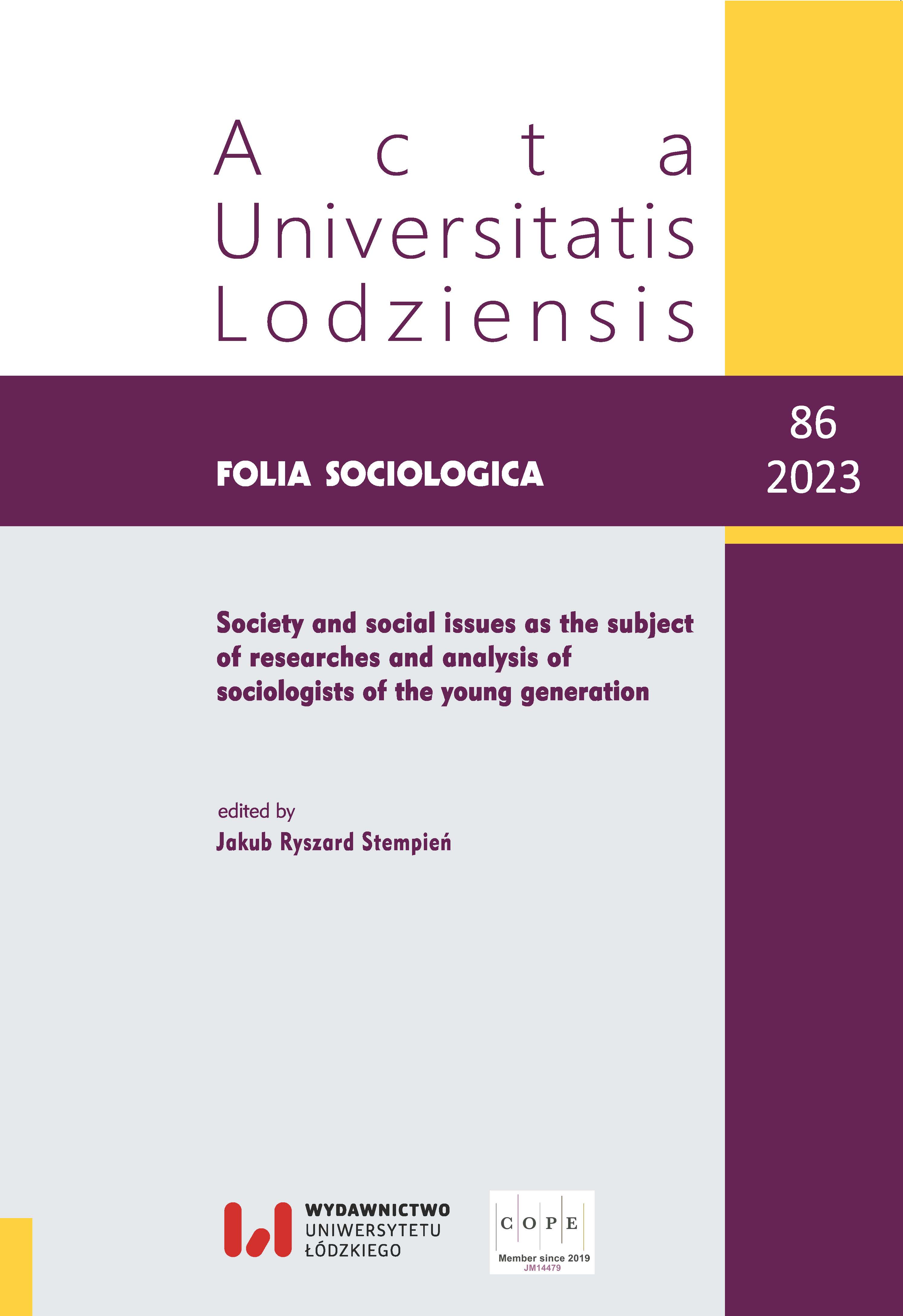Patterns of learning. Coping with school failure and its relevance to educational practices in adulthood
DOI:
https://doi.org/10.18778/0208-600X.86.06Keywords:
school failure, adult education, inequalities, lifelong learning, cultural capitalAbstract
Participation in adult learning is unequally distributed in terms of sociodemographic characteristics. One of the targets of public policy is to raise and even the level of participation among different social groups. In the article we concentrate on adults already taking part in non-formal educational activities, however, their attitudes, ways of participation and benefits from education differ significantly. The analysis aims to explore and link the experiences of compulsory education with those of adult education. School failures and ways of coping with them seem to be of particular importance. We also analyse the context, especially in terms of family capital and parenting styles. We identified two distinct patterns concerning lifelong learning – cumulative advantage and cumulative disadvantage, and present a few outliers. We argue that attitudes toward adult education and potential gains are determined by previous educational experiences within the school system.
References
Alheit P. (2011), Podejście biograficzne do całożyciowego uczenia się, “Teraźniejszość – Człowiek – Edukacja”, vol. 3, no. 55, pp. 7–21.
Google Scholar
Ball S. (2003), Class strategies and the education market: The middle classes and social advantage, Routledge Falme.
Google Scholar
DOI: https://doi.org/10.4324/9780203218952
Baumrind D. (1966), Effects of authoritative parental control on child behavior, “Child Development”, vol. 37, no. 4, pp. 887–907.
Google Scholar
DOI: https://doi.org/10.1111/j.1467-8624.1966.tb05416.x
Boeren E. (2016), Lifelong Learning Participation in a Changing Policy Context. An Interdisciplinary Theory, Palgrave Macmillan.
Google Scholar
DOI: https://doi.org/10.1057/9781137441836
Boeren E. (2017), Understanding adult lifelong learning participation as a layered problem, “Studies in Continuing Education”, vol. 39, no. 2, pp. 161–175.
Google Scholar
DOI: https://doi.org/10.1080/0158037X.2017.1310096
Bourdieu P. (1984), Distinction: A Social Critique of the Judgement of Taste, Cambridge University Press, Harvard.
Google Scholar
Bourdieu P., Passeron J., Nice R. (1990), Reproduction in Education, Society and Culture (Theory, Culture & Society), Sage Publications.
Google Scholar
Christie M., Carey M., Robertson A., Grainger P. (2015), Putting transformative learning theory into practice, “Australian Journal of Adult Learning”, vol. 55, no. 1, pp. 9–30.
Google Scholar
Czarnecki K.M. (1998), Źródła trudności i niepowodzeń uczniów klas początkowych w uczeniu się pojęć szkolnych, [in:] J. Łysek (ed.), Niepowodzenia szkolne, Oficyna Wydawnicza “Impuls”, Kraków.
Google Scholar
Czarnik S., Górniak J., Jelonek M., Kasparek K. (2022), Bilans Kapitału Ludzkiego 2022/2021. Raport z badania ludności w wieku 18–69 lat, Polska Agencja Rozwoju Przedsiębiorczości, Warszawa.
Google Scholar
Dąbrowski M., Żytko M. (eds.) (2007), Badanie umiejętności podstawowych uczniów klas trzecich szkoły podstawowej. Raport z badań. Cz. I, Centralna Komisja Egzaminacyjna.
Google Scholar
Desjardins R., Rubenson K., Milana M. (2006), Unequal chances to participate in Adult learning: International perspectives, UNESCO International Institute for Educational Planning.
Google Scholar
Dudzikowa M., Wawrzyniak‑Beszterda R. (eds.) (2010), Doświadczenia szkolne pierwszego rocznika reformy edukacji. Studium teoretyczno-empiryczne, tom 1, Oficyna Wydawnicza “Impuls”, Kraków.
Google Scholar
Fitzmaurice H., Flynn M., Hanafin J. (2021), Parental involvement in homework: A qualitative Bourdieusian study of class, privilege, and social reproduction, “International Studies in Sociology of Education”, vol. 30, no. 4, pp. 440–461.
Google Scholar
DOI: https://doi.org/10.1080/09620214.2020.1789490
Guo S. (2010), Toward recognitive justice: Emerging trends and challenges in transnational migration and lifelong learning, “International Journal of Lifelong Education”, vol. 29, no. 2, pp. 149–167.
Google Scholar
DOI: https://doi.org/10.1080/02601371003616533
Hoggan C., Kloubert T. (2020), Transformative Learning in Theory and Practice, “Adult Education Quarterly”, vol. 70, no. 3, pp. 295–307.
Google Scholar
DOI: https://doi.org/10.1177/0741713620918510
Illeris K. (2007), How We Learn: Learning and Non-Learning in School and Beyond, Routledge, London.
Google Scholar
DOI: https://doi.org/10.4324/9780203939895
Ioannidou A., Desjardins R. (2020), The political economy of adult learning systems: some institutional features that promote adult learning participation, “Journal for Research on Adult Education”, vol. 43, no. 2.
Google Scholar
DOI: https://doi.org/10.1007/s40955-020-00159-y
Kilpi-Jakonen E., Vono de Vilhena D., Blossfeld H.P. (2015), Adult learning and social inequalities: Processes of equalisation or cumulative disadvantage?, “International Review of Education”, vol. 61, no. 4, pp. 529–546.
Google Scholar
DOI: https://doi.org/10.1007/s11159-015-9498-5
Kojs W. (1998), Wokół pojęcia niepowodzeń szkolnych, [in:] J. Łysek (ed.), Niepowodzenia szkolne, Oficyna Wydawnicza “Impuls”, Kraków, pp. 15–23.
Google Scholar
Kwieciński Z. (2002), Nieuniknione funkcje alfabetyzacji w dorosłości, UMK, Toruń–Olsztyn.
Google Scholar
Lareau A. (2000), Home Advantage: How social class and parental intervention in elementary education, Rowman & Littlefield Publishers.
Google Scholar
Mikiewicz P. (2005), Społeczne światy szkół średnich – od trajektorii marginesu do trajektorii elit, Dolnośląska Szkoła Wyższa, Wrocław.
Google Scholar
Okoń W. (2004), Nowy słownik pedagogiczny, Żak, Warszawa.
Google Scholar
Papaioannou E., Gravani M., (2018), Empowering vulnerable adults through second-chance education: a case study from Cyprus, “International Journal of Lifelong Education”, vol. 37, no. 4, pp. 1–16.
Google Scholar
DOI: https://doi.org/10.1080/02601370.2018.1498140
Petelewicz M., Pieńkosz J., Piotrowska K., Sobestjański K., Stankowska J., (2023), Raport z badania „Uczenie się dorosłych Polaków”, Instytut Badań Edukacyjnych, Warszawa.
Google Scholar
Roosmaa E., Saar E., (2016), Adults who do not want to participate in learning: a cross-national European analysis of their perceived barriers, “International Journal of Lifelong Education’, vol. 36, no. 3, pp. 1–24.
Google Scholar
DOI: https://doi.org/10.1080/02601370.2016.1246485
Shuller T., Watson D., (2009), Learning through life. Inquiry into the Future for Lifelong learning, NIACE, Leicester.
Google Scholar
UNESCO (United Nations Educational, Scientific and Cultural Organization) (2016), Recommendation on Adult Learning and Education, UNESCO, Paris.
Google Scholar
Yu S., Liu Y., Guo R., (2022), “How does my family affect me?” The family cultural capital impact on Chinese junior high school students’ academic achievement, “Thinking Skills and Creativity”, vol. 46.
Google Scholar
DOI: https://doi.org/10.1016/j.tsc.2022.101146
Published
Versions
- 2023-09-30 (2)
- 2023-09-30 (1)
How to Cite
Issue
Section
License

This work is licensed under a Creative Commons Attribution-NonCommercial-NoDerivatives 4.0 International License.










